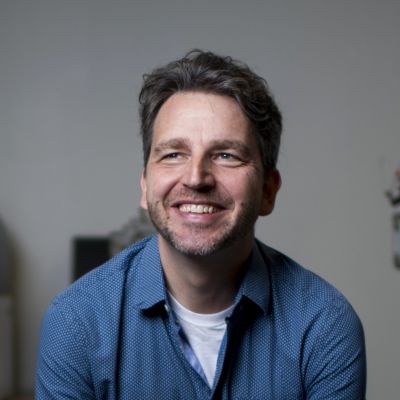Associate Member of Staff
Mass Spectrometry Core Leader, Center for Salivary Diagnostics
Lecturer in Developmental Biology, Harvard School of Dental Medicine
Markus Hardt studies the molecular mechanisms of disease, with the goal of finding pathways that lead to new diagnostics and therapeutics. Hardt is particularly interested in cancer pain. Effective treatment of pain remains a critical unmet goal in cancer therapy. Increased life expectancies mandate more effective pain management, so that cancer patients and survivors can lead more productive and fulfilling lives.
Hardt is conducting research to provide a molecular rationale for the development of therapeutic treatments to reduce oral cancer pain, and cancer pain in general, and allow patients to regain full function. Oral cancer is unique in its pain profile. Not only do oral cancer patients rate pain as their worst symptom but the pain also continues after treatment. Patients may face unpleasant side effects and build up a tolerance to pain medication.
“I am taking a proteomic approach to characterize pain-producing proteases and peptides within the cancer microenvironment,” said Hardt. “Secreted proteases are promising, yet largely unexploited drug targets for manipulating the levels of pain-producing peptides. The goal of this research is to provide the molecular basis for an entirely new perspective with which to understand and treat cancer pain.”
Hardt is also testing the hypothesis that metastatic prostate cancer cells secrete a common signature of neuro-active peptides. He is using innovative mass spectrometry-based technologies to compare the secreted peptidome of metastatic and non-metastatic prostate cancer cells. Determining the role of metastasis-associated peptides in inducing pain constitutes a novel direction in cancer pain research.
Hardt was part of the consortium of scientists who deciphered the human salivary proteome. He is Forsyth’s foremost expert in mass spectrometry and plays a leading role in the Forsyth Center for Salivary Diagnostics, which was initiated in March 2013. The Center’s goal is to change the landscape of human medicine by using saliva instead of invasive blood-based tests to diagnose disease and promote health.
Mass Spectrometry Core
The Forsyth Center for Salivary Diagnostics – Mass Spectrometry Core was funded by the Massachusetts Life Science Center (MLSC) as a collaborative infrastructure for both internal and external academic and commercial researchers.
The core offers custom services in mass spectrometry and houses state-of-the-art instrumentation, including five mass spectrometers and associated liquid chromatography instruments. The core brings together expertise in proteomics, peptidomics, metabolomics, and metabololipidomics analyses. This core currently operates on a collaborative basis—please contact Dr. Markus Hardt if interested in Mass Spectrometry at Forsyth.

